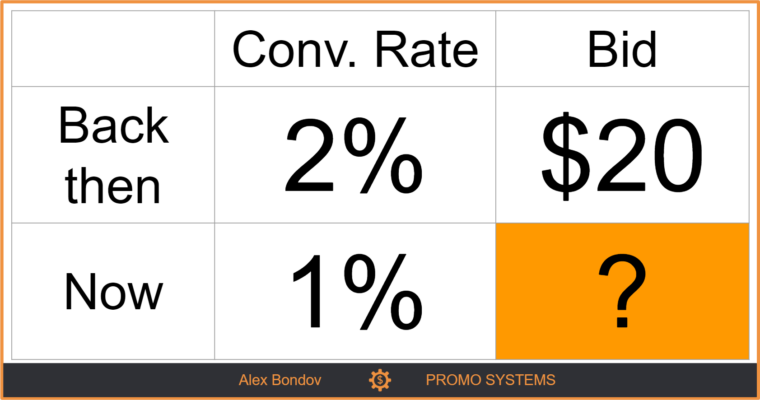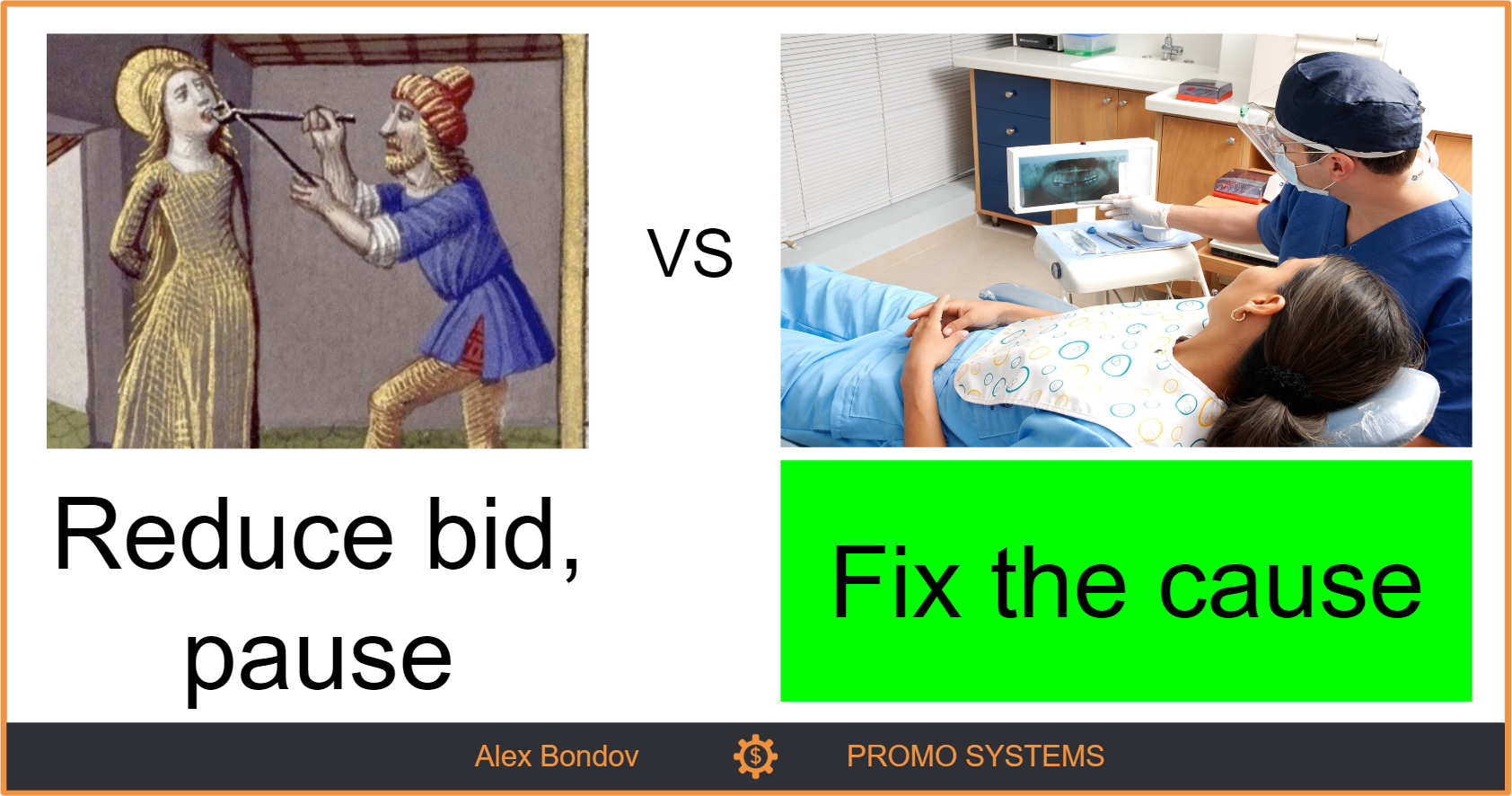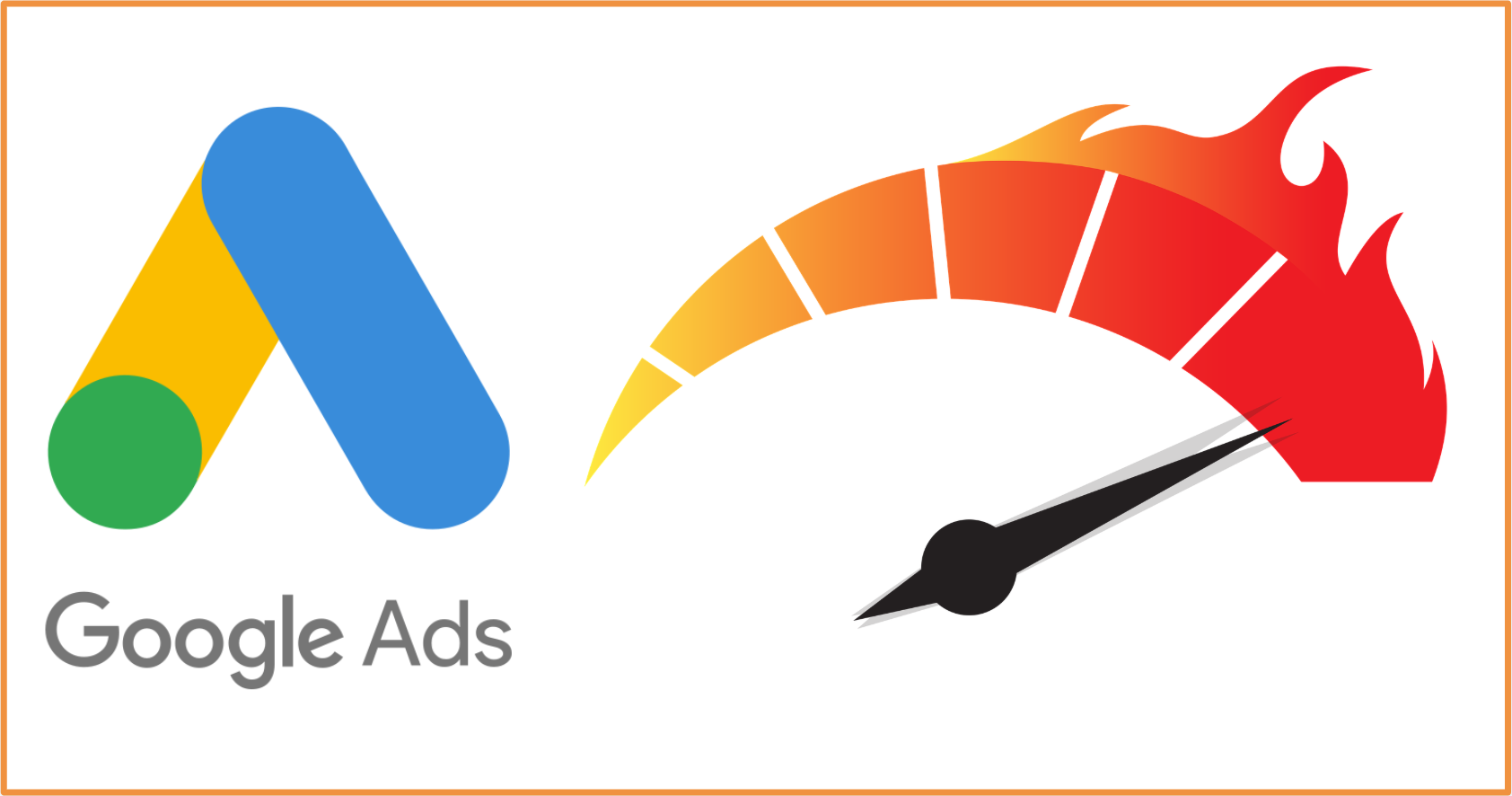Short answer
Manual management of cost-per-click bids is not a good idea at all. There is a common misconception that you should increase/decrease the cost-per-click bid of a keyword depending on its individual performance. Learn, how to avoid this main pitfall of the bid management.
Explanation
Google and Microsoft use a second-price auction model. A buyer doesn’t have to pay their full bid. You pay the minimum amount necessary to maintain your position in search results. Your fact cost-per-click is defined by your competitor’s ad rank (which you don’t know) and your QS, not by your bid. Your bid (multiplied by your QS) only defines, which competitors you beat and appear above in search results. As you can see, your bid is not even a part of the equation where your CPC is defined:
CPC = the ad rank of the advertiser just below you / your quality score + $0.01 (so, the higher the QS, the lower the CPC)
In these simplified examples*, we assume the quality score of all participants = 10.
Example 1
Your bid is $10, a bid of a competitor below you is $9, so you pay $9.01 for a click.
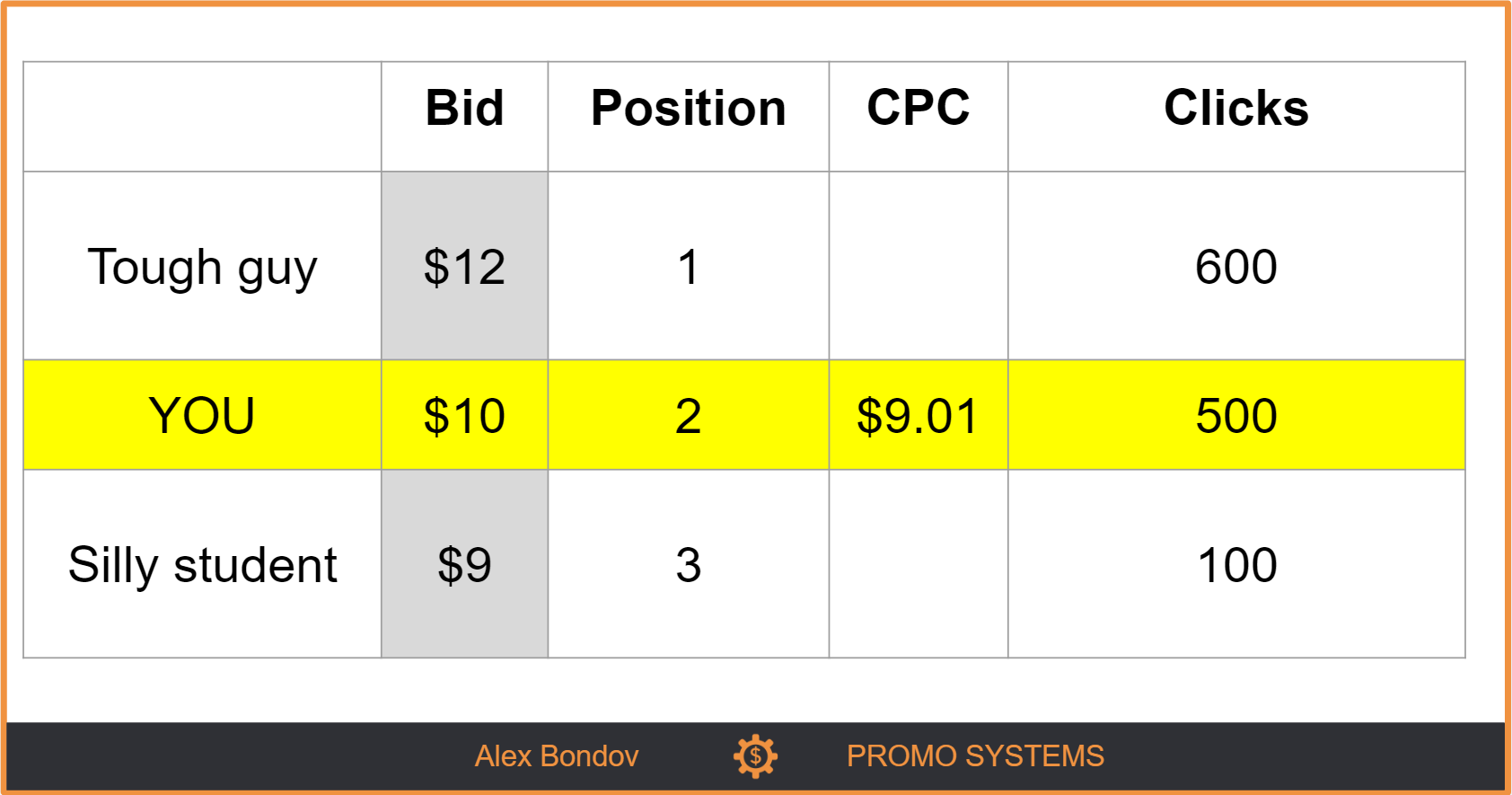
You decrease bids by 15% expecting your CPC decreases by 15%. And …
- your traffic volume drops in 5 times. Your competitor’s bid was 10% lower than yours, so lowering your bid by 15% made your ad appear lower than an ad of your competitor. You get 100 clicks instead of 500 after you’ve changed the bid.
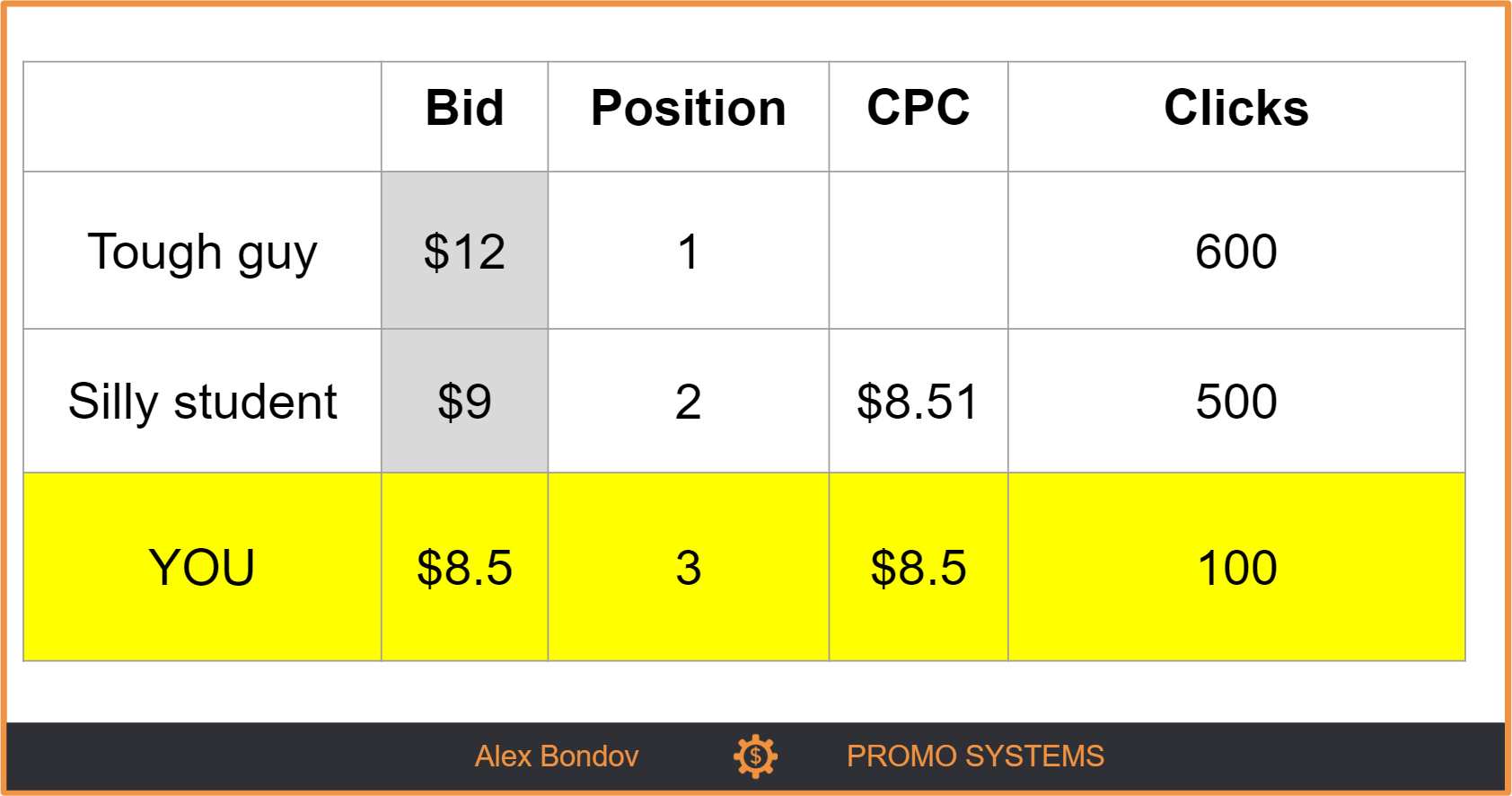
- Or, the change makes no difference. If your competitor’s bid was 16% lower than yours, then your 15% bid decrease will make no difference. You’ll still pay the amount that is just enough to maintain your position.
Example 2
Your bid is $10, a bid of a competitor below you is $5, so you pay $5.01 for a click.
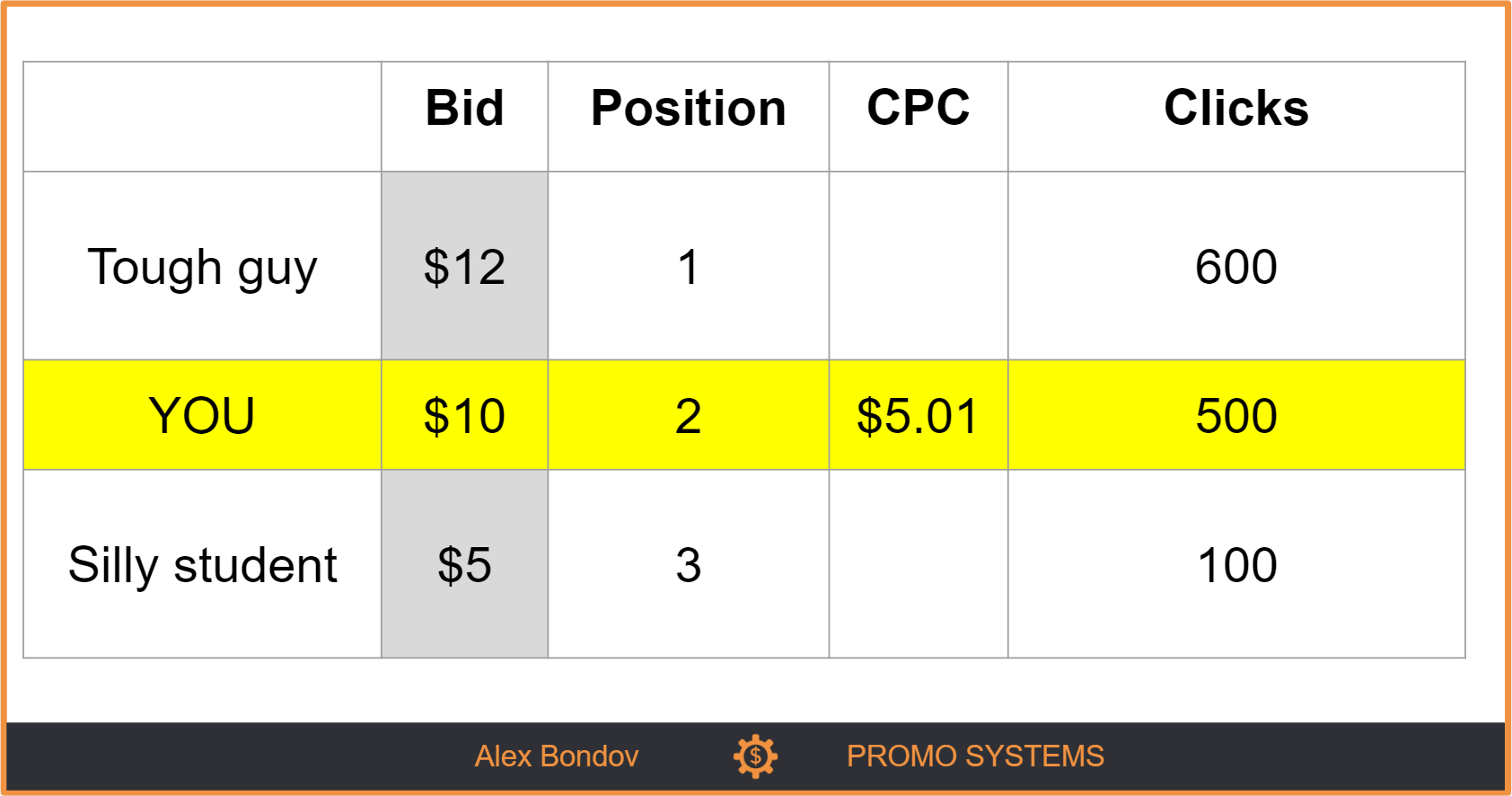
You increase bids by 25% expecting to gain a significant boost in the number of clicks accounting for a 25% increase in CPC. But …
- you end up paying 140% more for a 20% gain in a number of clicks.
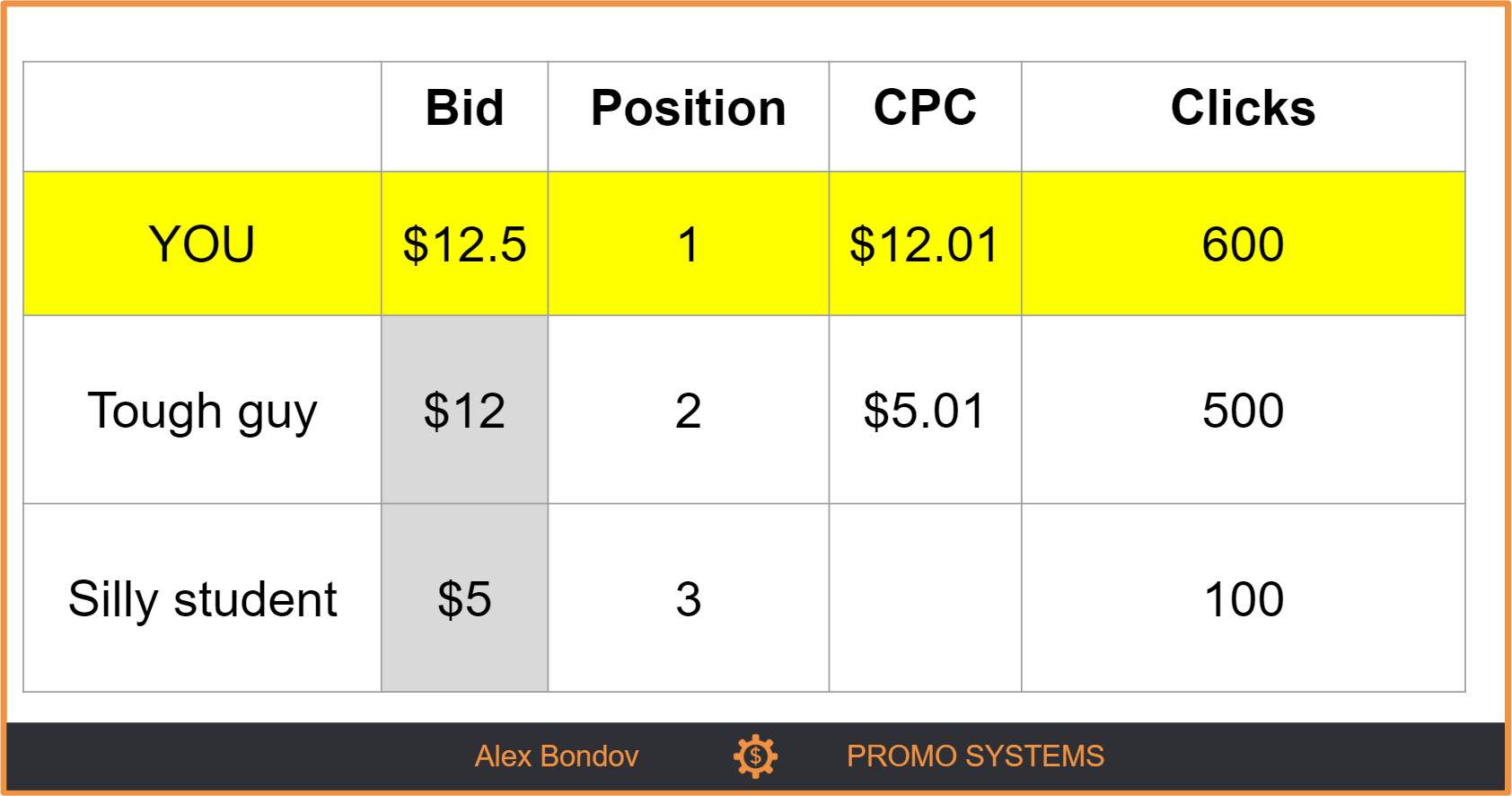
- Or, it makes no difference. If your competitor’s bid is 26% higher than yours, your bid increase isn’t sufficient to beat the competitor in the higher position.
What to do instead
You simply don’t have all the necessary data to make such decisions effectively. Delegate bidding to a machine. You need to master performance-based automated bidding strategies. They cut your ad spend via decreasing bids smartly: they address the issues listed here and take the factors that influence conversion rate into account.
If your conversion rate drops, they will decrease your bids automatically, individually for each keyword in each auction, just by the amount that is right to meet your performance goals. See our recent case study on this matter.
If the conversion rate returns to normal, they will adjust bids accordingly. You can even set them up in a way when they manage bids depending on probable average order value.
Want to improve the performance of your search ads further?
Fix the cause of poor performance instead of trying to fix the consequences
Increasing Bids isn’t Profitable? You Can Still Get More Sales from Search Ads
*The numbers in these examples are only for your convenience so you understand the subject better. They don’t necessarily represent the difference in clicks across different ad positions.
